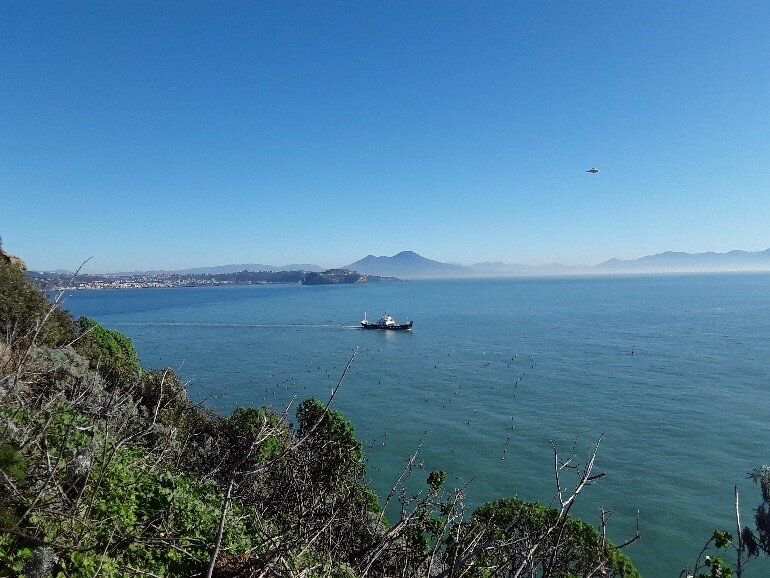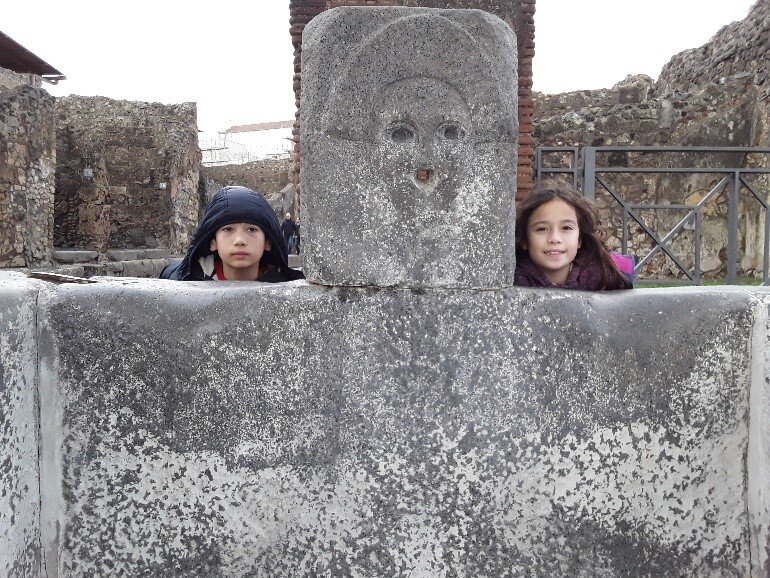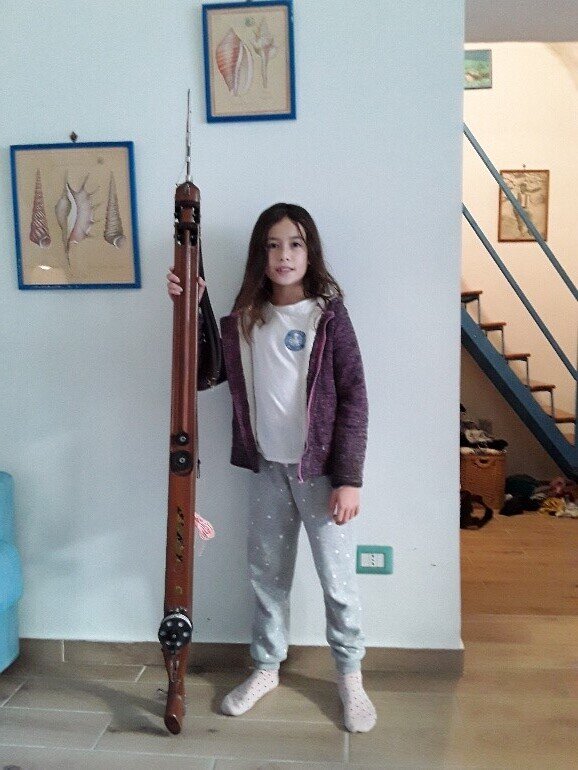We spent Christmas 2019 in Naples, which gave us the opportunity to explore some very interesting sites: Pompeii was far bigger than I expected (although I confess that I did not actually measure it on the scale of various maps I studied before visiting). The better-preserved city of Herculaneum was even more interesting for us, partly because we hired a guide but also because it was in better condition. Our entry to Herculaneum started with an inspection of many skeletons (replicas, in fact) of those who were overcome by the pyroclastic flow while awaiting evacuation in the boathouses- this really brought home to us the human tragedy and horror of what happened. The only consoling factor is that the victims seem to have died almost instantly from thermal shock so at least they did not suffer for long. Our guide told us that Herculaneum was the place from which Rectina released a carrier-pigeon with a request for help from the fleet at Misenum, although it is hardly likely that anyone stationed there could have blind to the unfolding catastrophe because, even from Misenum, the eruption would have presented a terrifying and noisy spectacle. (In fact, it was accurately recorded as such by Pliny the Younger, whose description was so comprehensive that violent, vertical eruptions of this nature are still known as Plinian eruptions). Noah and Sophia already knew about the AD79 eruption from a few sources: Amongst other genres, we have been reading them such books as the Roman Mysteries series (by Caroline Lawrence) as well as the writings of the two Plinys. There is some crossover between all of these books; obviously, the Plinys were relatives and both witnessed the eruption but the Roman Mysteries books also include references to real events and characters, including the eruption, its aftermath and the death of Pliny the Elder while attempting to evacuate survivors. (Noah and Sophia love the Roman Mysteries books and I recommend them for all children. These books have excellent, fictional plots but also bring alive some ancient history. After being introduced to Pliny the Elder in the Roman Mysteries books, the children now like me to read to them from his book of Natural Histories, that is very entertaining for its bizarre descriptions of the natural world, including an Octopus that boxes with dogs…).
For me, one of the highlights of our holiday was to stand and walk in places where the Plinys had been. I am sure that they did not fully understand what was happening when the volcano erupted and it must have seemed like Armageddon, yet Pliny (the Elder) and his sailors still set sail across the Bay of Naples towards a mountain blasting out fire and smoke, to investigate and assist, under a hail of hot rocks and dust. Only when I stood at Misenum could I really appreciate what they did.
Naples itself was an appalling city: tatty, dilapidated and full of trash and graffiti but we were fortunate in that our rented house provided a little oasis of peace for us. When I first booked it, the owner was a man who loved the sea as much as I do but, sadly, he died shortly before our arrival. His sister now manages the property and had left some of his possessions there including corals, shells, tesserae, amphorae and a huge spear-gun, which she permitted me to use. The spear-gun told me much about its original owner: Clearly, it was home-made but to a very high standard and with much thought given to its design, including an asymmetric handle shaped perfectly to fit its owners right hand. It was a large gun, built for “blue-water” hunting (i.e. hunting in the deep, open sea for large pelagic fish such as Tuna and large Dorado.) I did not take it out of the house, despite the offer of its use, because it seemed presumptuous to do so - akin perhaps to accepting Poseidon’s trident from Amphitrite. Its owner (and maker) must have been a true man of the sea and I wish that we could have met him. Everything in his house spoke of a life lived in the ocean and we would surely have had much in common. Sophia suited the gun although I know that she would not want to hunt with it or hurt anything if it came to it. As you see, it would have been quite a sight had she used it in the water. (Sophia does not like the idea of spearfishing and is very concerned for the wellbeing of animals. We once watched the fishing fleet return to port at Andratx and Sophia was horrified to see that a large proportion of the fish and crustaceans were still alive, dying slowly on the decks. She explained that she had previously assumed that the boats go out to collect all the fish that had died of old age.
For people like us, who love the sea, our little holiday in Naples was wonderful and there is so much more to see and do than we managed in our short time there. One day, we will go back there but our list of interesting destinations is long and life is short.



